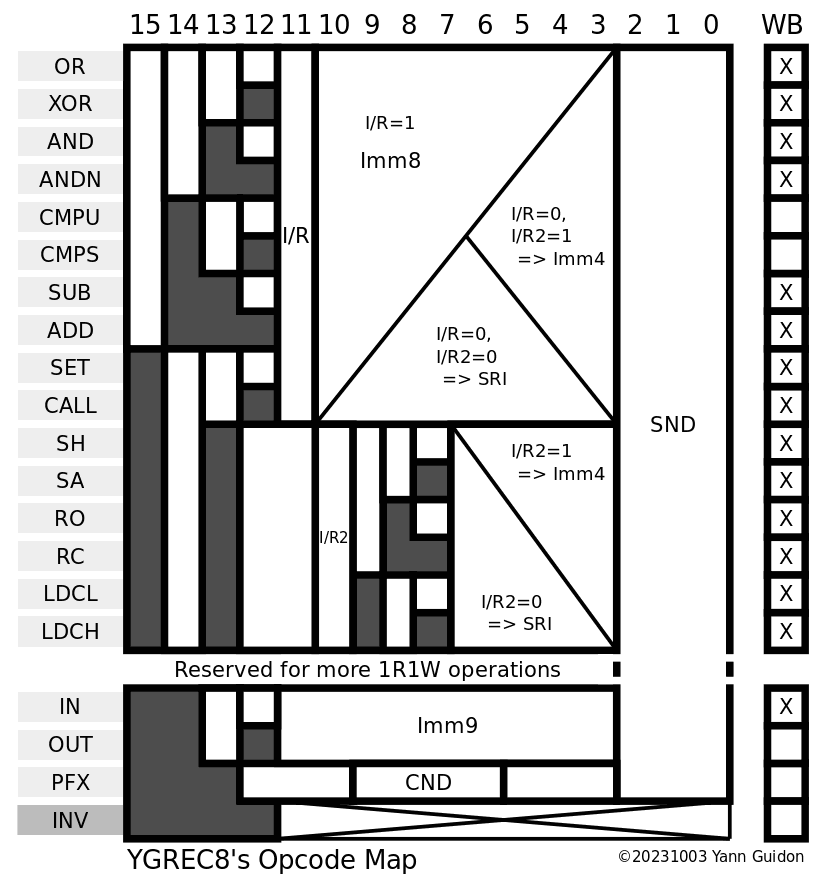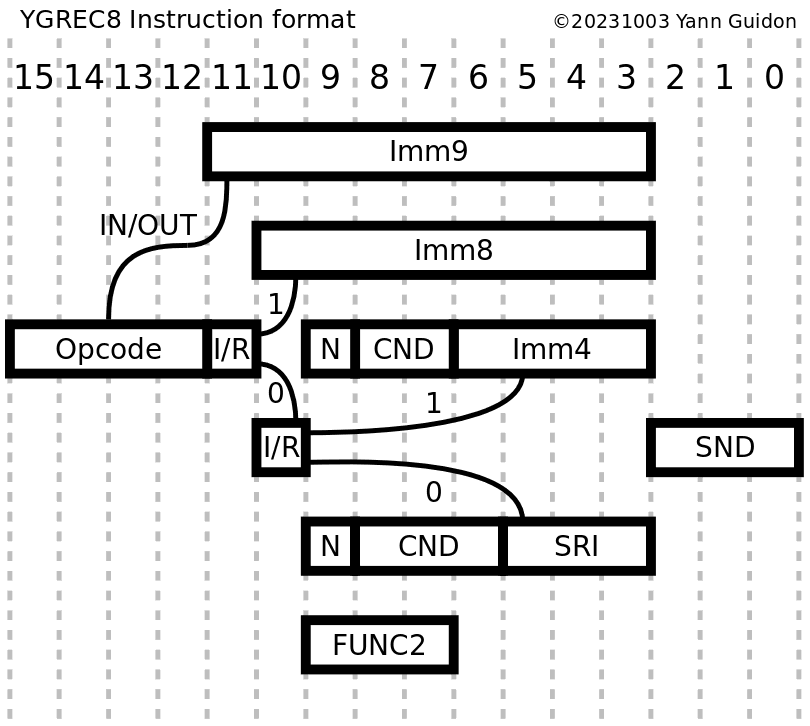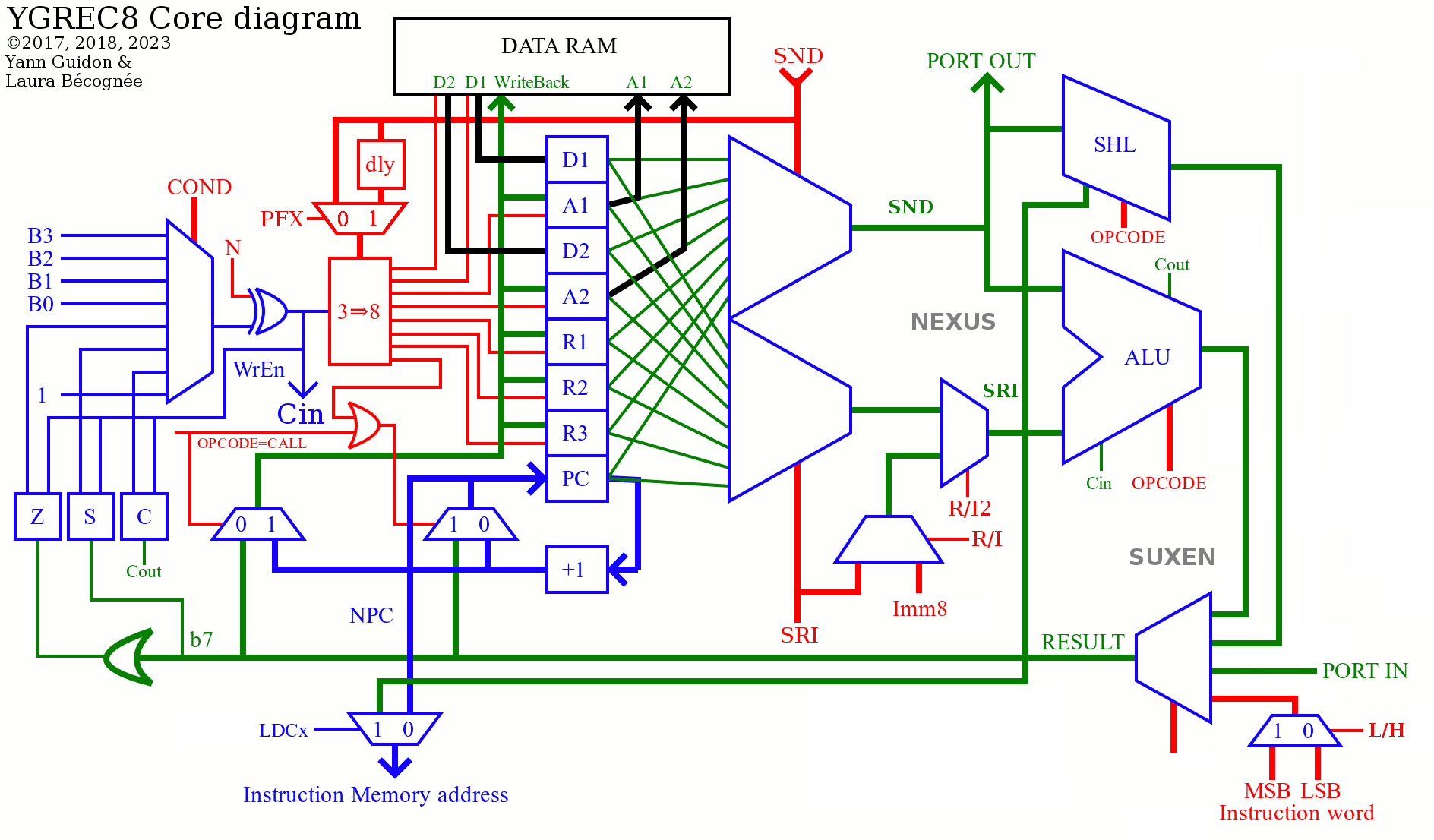As I review and refresh the documentation, I realise that the pressure on the opcode map can be reduced a bit. There is a new prefix opcode (that interacts with the FSM) but the extra/optional opcodes do not need the conditional/predication bits. This would move a whole block of opcodes to lower bits and free more room. The prefix would have its own opcode and INV will remain untouched. Some reorganisation is required as I refresh the doc...
SH/SA/RO/RC are 4 optional opcodes that would now be located in the CND field, which is 3 bits wide. This leave 4 more opcodes, maybe for multiplication or whatever. But this frees 3 more main opcodes !
Maybe LDCL and LDCH could have a 8-bit version though that would be pointless (a SET Imm8 Reg instruction would do the same).
IN and OUT would have their own main opcode root code, not straddling across bit boundaries
...............
Update :
Here are the new versions of the opcode map and instruction format:


There is now ample room for more opcodes in the future, though they do not seem required now. There is also a separate prefix opcode, a totally independent INV opcode, and IN and OUT have the same opcode binary prefix (unlike previously).
The PFX opcode uses only the CND and SND fields, more could be used later. It doesn't check the I/R and I/R2 fields... yet. They should be kept cleared so far. More prefixes could appear in the future, for example using the SRI field.
I know : this will force me to rewire the mechanical assembler... The VHDL assembler will also need some revamp.
The core diagram has been updated too, implementing the prefix opcode: the output of the condition selector can be routed to the carry input of the ALU on the next cycle, and the writeback address can be delayed so write occurs on the register designated by the prefix and not the current instruction.

Maybe later : CMPU & CMPS can be dropped by adding 2 flags to the prefix : one to prevent result writeback, another to treat operands as signed. This would enable tests using the boolean opcodes.
 Yann Guidon / YGDES
Yann Guidon / YGDES
Discussions
Become a Hackaday.io Member
Create an account to leave a comment. Already have an account? Log In.